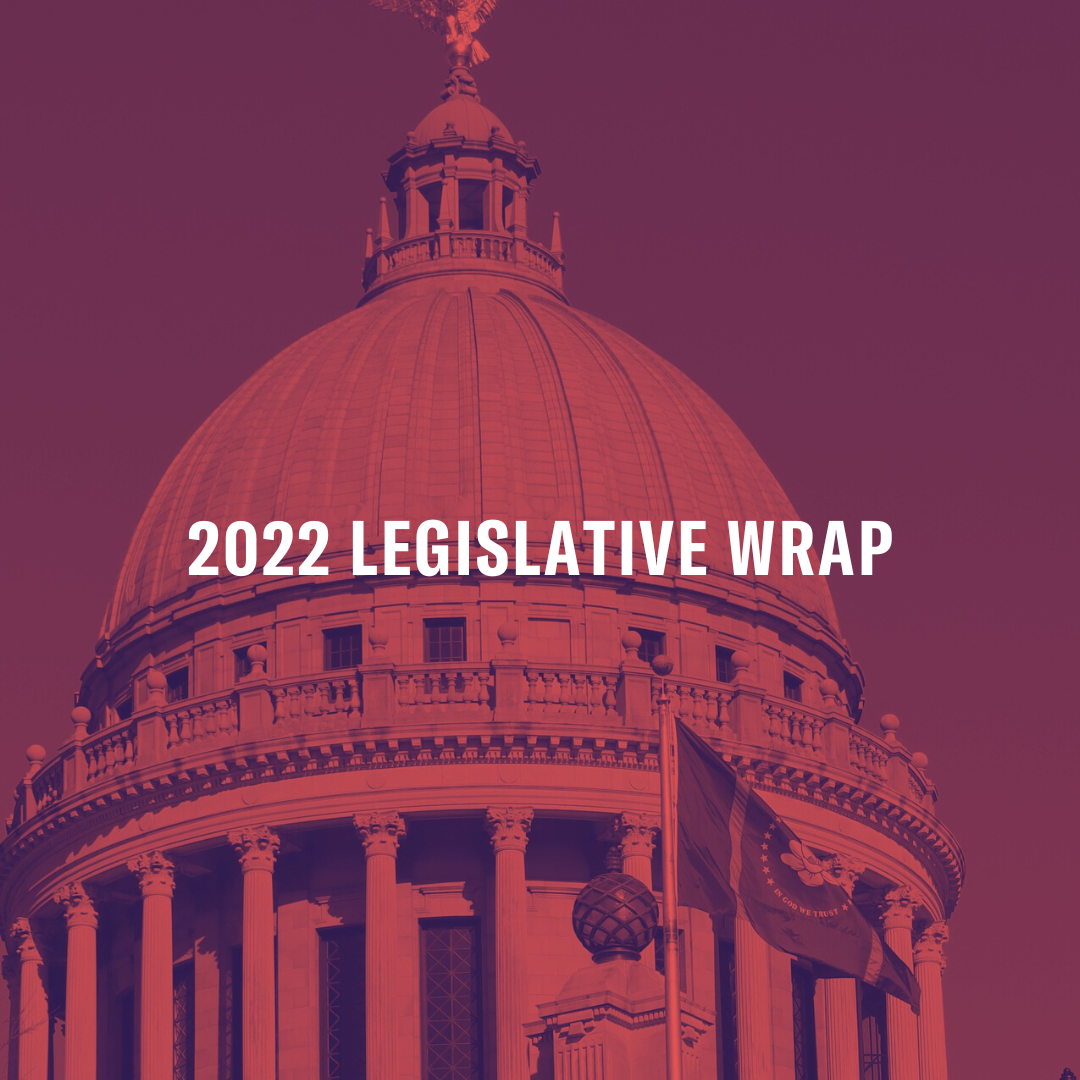Mississippi legislators have left the State Capitol and returned to their communities after the 2022 Legislative Session ended on April 5th. Together with our partners, ACLU of Mississippi staff worked tirelessly throughout the duration to ensure those communities would not face laws that attack their civil rights and liberties. Additionally, your response to our calls to action cannot go unmentioned in reflecting on this year's fight to improve Mississippi for us all.
Voter Suppression
- Senate Bill 2606 would have permitted the purging of voters from voting rolls who could not prove their citizenship with specific documentation. While the ACLU of Mississippi advocated against this bill, and it ultimately died in committee, a similar scheme was passed by House Bill 1510. We feel strongly that these bills are unnecessary and will lead to voter disenfranchisement; existing federal law already requires voters to attest that they are voting-eligible citizens under penalty of perjury.
- While we ultimately opposed House Bill 1510, our advocacy ensured the bill signed by the Governor was less harmful than the initially introduced legislation. As passed, the bill permits the purging of voters who cannot prove their U.S. citizenship from voter rolls. This bill will harm those who do not have a driver’s license or access to documentation necessary to prove citizenship.
Other harms we were able to influence legislators to remove: (1) permitting the Secretary of State to conduct an audit if they found a "discrepancy" in the number of votes cast without explicitly defining what that discrepancy was (2) shielding any audits conducted under the proposed legislation from public records requests (3) allowing the Secretary of State to extend an audit indefinitely as they saw fit (4) permitting third parties to conduct audits.
We also support the portion of this bill that creates an Elections Support Fund to upgrade and maintain voting systems and train election officials.
Access to Voting
- The ACLU of Mississippi advocated for bills from both the House and Senate that would have enacted online voter registration and early voting in Mississippi. We collaborated with legislative partners and Young Democrats to support these policies. Unfortunately, neither bill made it out of committee. Besides New Hampshire, Mississippi remains the only state that does not have online voter registration. The movement to expand voting access through online voter registration and early voting will continue to build power for the next legislative session.
- The ACLU of Mississippi supports the restoration of the ballot initiative after the Mississippi Supreme Court effectively killed it in 2021. H.C. 39 would have restored the ballot initiative, which the ACLU applauds. However, the bill would have set a higher threshold for vote percentages than the initial ballot initiative. It also would have made a public record of those who signed the petition to get an initiative on the ballot. Ultimately, H.C. 39 died in conference.
Voting Rights Restoration
We have long advocated for updating and streamlining the process people convicted of felonies must go through to have their voting rights restored. This session saw the introduction of House Bill 630, which would have allowed those who had their felony convictions expunged to gain their voting rights back automatically. The bill died in committee, but its language was later added to Senate Bill 2066. Unfortunately, S.B. 2066 failed to make it out of conference. We will continue to fight for voting rights restoration for those convicted of felonies in the 2023 session.
Classroom Censorship
A nationwide effort to restrict educators and erase historical facts made its way to Mississippi this session through Senate Bill 2113. We quickly launched a multimedia campaign, rallying Mississippians to tell their legislators to vote against this attack on our history and democracy. Unfortunately, our efforts did not stop the classroom censorship bill from passing. The ACLU of Mississippi is committed to monitoring its implementation and will be ready to take action for teachers who will be targeted for simply teaching inclusivity.
LGBTQ Rights
The ACLU of Mississippi is satisfied to see the Legislature avoid further damage to the rights of LGBTQ Mississippians. Two harmful pieces of legislation, House Bill 1099 and Senate Bill 2356, die in the 2022 legislative session. Both bills would have negatively impacted transgender individuals who are incarcerated by prohibiting them from filing for name and gender marker changes.
New Crimes and Felony Offenses
This year, our lawmakers faced the opportunity to vote for or against bills that included almost 20 new crimes and harsher penalties for which Mississippians could be charged. The ACLU of Mississippi has long stood against creating more crimes, which would contribute to our state's already inflated prison population. Luckily, all but two of these bills failed. Take a look at the complete list of bills here.
Marijuana-related Expungement
As the Legislature took up medical marijuana legislation, the ACLU of Mississippi worked to ensure that the legacy of marijuana criminalization did not prevent the equal enjoyment of this new right. We recognize that businesses, medical professionals, and patients will benefit from a medical marijuana program. However, people who the war on drugs has victimized deserve to benefit from this right. Unfortunately, marijuana-related expungement language did not make it to the final bill. But as this right continues to
Re-Entry
- Since the 2021 legislative session, the ACLU of Mississippi has advocated for the rights of people returning home from prison. As a result of our aggressive advocacy against abusive work release programs, we worked to ensure House Bill 747 created a single-county pilot program that put financial protection for people enrolled in the Rankin County program. During the 2022 legislative session, we advocated against the spread of this pilot program to other counties because it had not proven successful. Instead, legislators expanded this pilot program with the passage of Senate Bill 2437.
In general, work release is good because it reduces recidivism, but programs like these also invite the opportunity for exploitation. We will continue to keep a close watch on the work release programs and advocate for clear data that shows success before these programs are prolonged.
- We showed our commitment to re-entry reform alongside our coalition partners and formerly incarcerated individuals during our re-entry advocacy day at the Capitol. We stood together for child support suspension during incarceration. Though it did not pass, House Bill 592 acknowledged that incarceration should not be considered voluntary unemployment. We fervently believe this bill is a common-sense approach to avoiding economic barriers to re-entry – accumulated criminal debt and suspension of licenses.
- We also successfully encouraged lawmakers to pass Senate Bill 2273, which authorizes employers to submit regular information for employees on supervised release instead of personal meetings. The policy makes it easier for individuals to report without the risk of losing their job or being in violation for non-reporting by just trying to keep their job.




